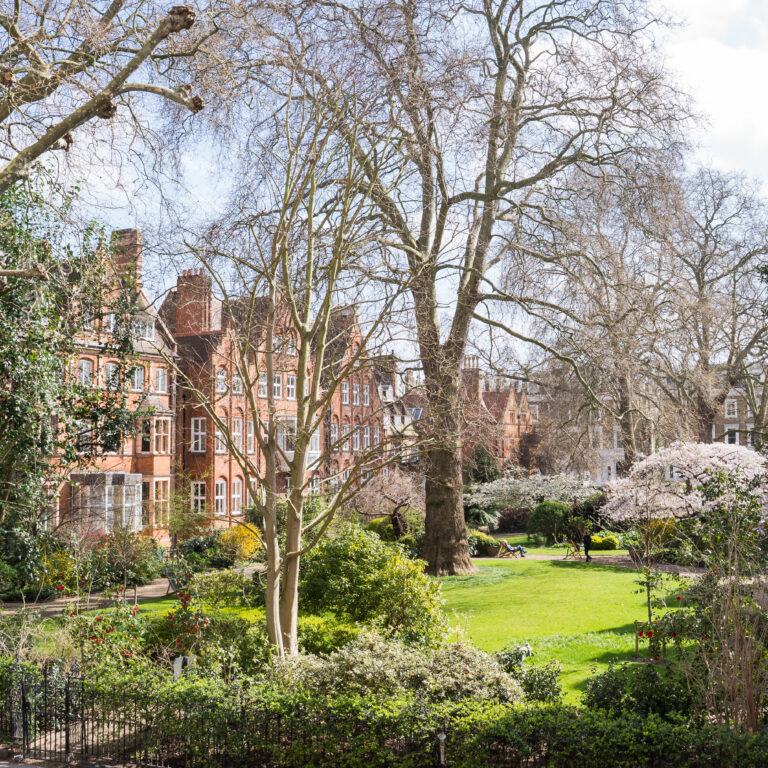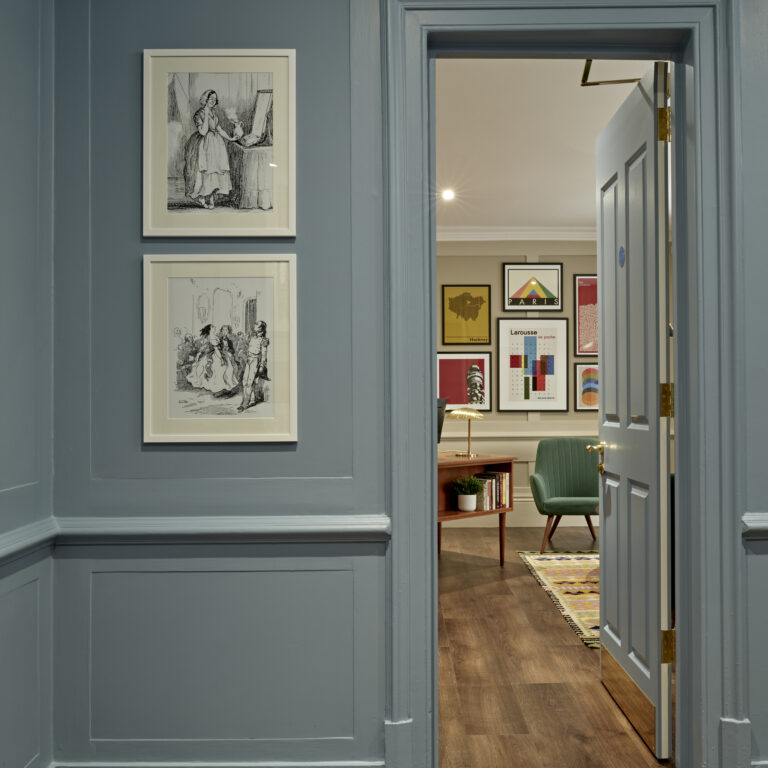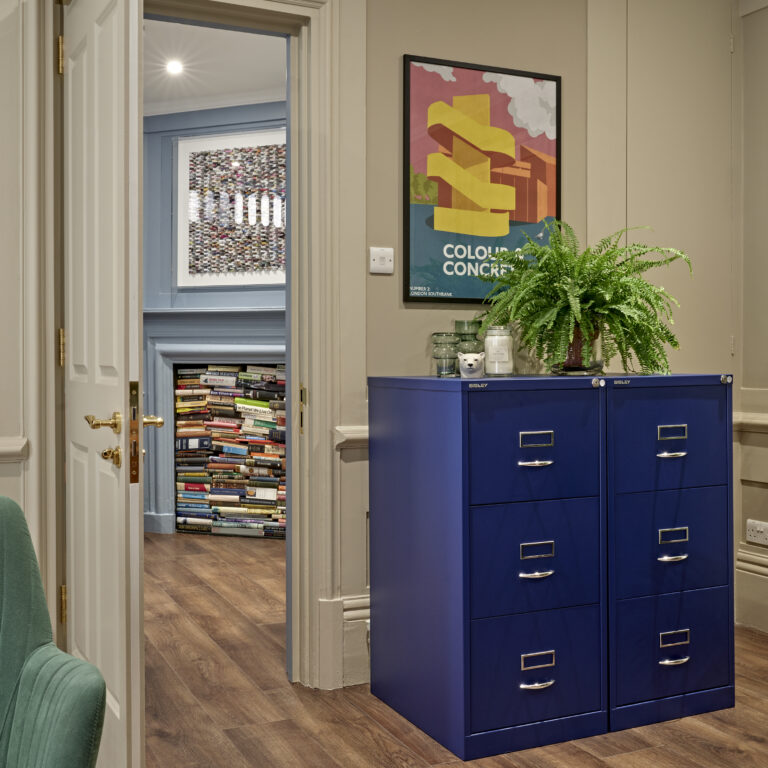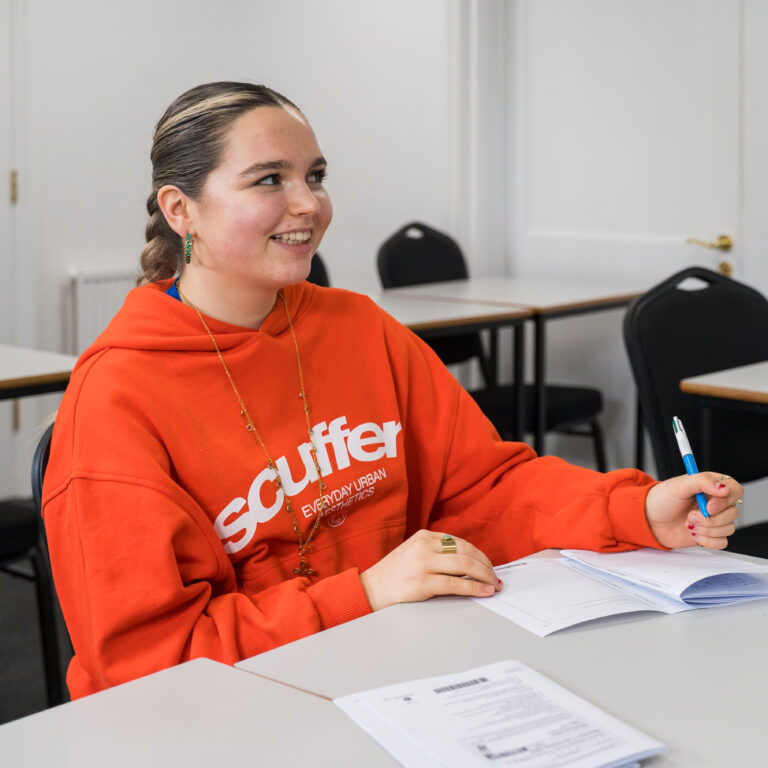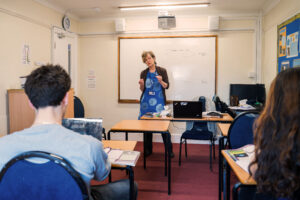GCSE Courses
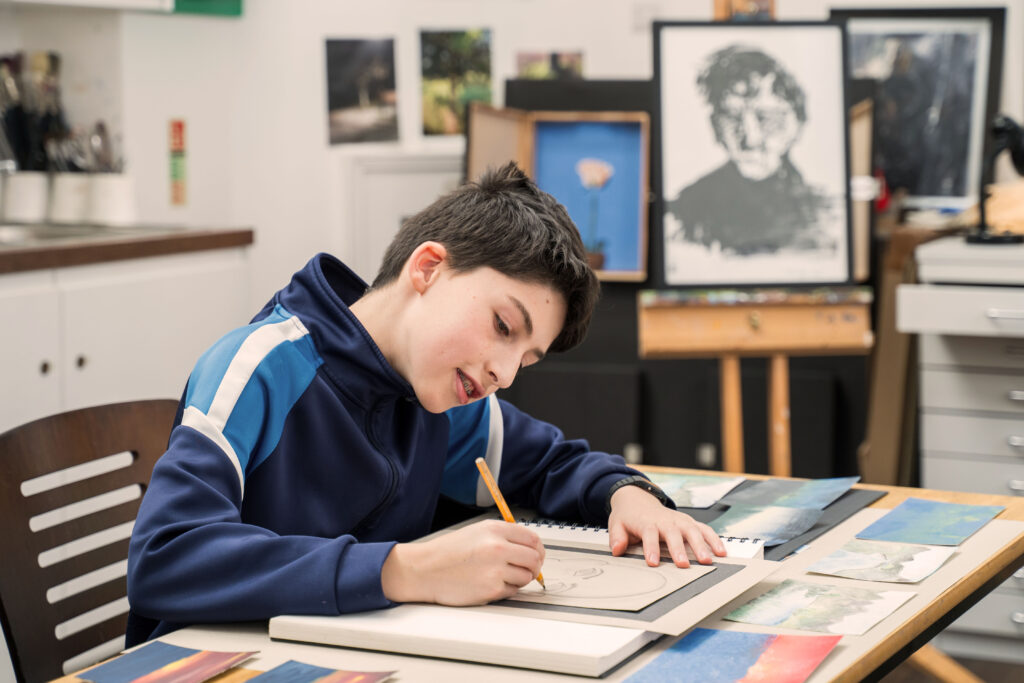
GCSE Art
Exam Board: Edexcel
Course Duration: 2 yrs (1 yr option)
Why Study Art?
Creativity, or as the late writer and thinker John Berger preferred to describe it as “… the act of giving form to what we receive…“, is at the heart of every area of our lives; an essential activity, that enables us to become closer to Nature and the human-made world around us that derives from Nature; pay homage to them, and increasingly care for them … as well as its value as a commercial venture bringing in GDP.
The art department provides an environment where students can develop and nurture this life affirming activity, both visually and conceptually, developing their own unique approach to the visual arts with the support of our teachers.
Success for GCSE Art: Royal College of Art, Young Art Exhibition
Course Content At A Glance
Component 1 – Personal Portfolio
Component 1 is the larger of the 2 components, or projects and its contents are generated by the students but supported with the guidance of the teacher. It consists of approximately between 40 to 45 sides of a work-journal (A3 in size); usually also with larger works, that won’t fit into the journal but are documented/photographed and then included. As well as practical work, the project includes some research and critical study of artists and various other subject-matter that the students are interested in and that visually and or conceptually connect with their chosen area of study. The project should demonstrate a growing visual/conceptual path and end with a final piece, or series of pieces in two and or three dimensions, that demonstrate a ‘personal’ culmination of the period of exploration and study. The work should demonstrate the Knowledge, Understanding and Skills that are outlined in the current specification.
This component comprises 60% of the GCSE Art marks.
Component 2 – Externally set assignment
Component 2 is a shorter project of between 25 and 35 sides of the same sized A3 work-journal and they devise, again with help and support of their teacher, a personal response to a theme set by the exam board; however all the set themes are so wide in scope, that they enable students to choose their own subject matter and directions. The project may be linked in some ways to the first unit but does not have to be. As with component 1, this component consists of mostly practical work with elements of research and critical evaluation and again demonstrates the Knowledge, Understanding and Skills outlined in the specification.
This component comprises 40% of the marks and takes up approximately 40% of the time.
Recommended Reading
- The Story of Art, E.M Gombrich
- Ways of Seeing, J Berger
- The Oxford Dictionary of Art & Artists
- Painting Today, Pub: Phaidon
- Art Today, pub: Phaidon
- Vitamin P series, pub: Phaidon
Recommended Websites
- Edexcel – GCSE Art and Design (fine art)
- Tate
- The National Gallery
- The Whitechapel Gallery
- The Royal Academy
- The Serpentine Gallery
Progression
A GCSE in Art & Design (Fine Art) can lead in many fruitful & exciting directions, including: an A-level in the same subject, or another adjacent subject, such as History of Art and then on to a Degree or Diploma qualification in Fine Art, or an Applied Art such as: Graphics, Animation, Lighting, Engineering/Display, Theatre Design, Advertising, Architecture, Computer Game Design, Visual Effects or Animation and on to further Post-Graduate Studies & many fascinating careers.
The ‘Tuesday Art Club’ has gained and retained a regular group of enthusiasts, some of whom have returned to art after a gap of some years and are not studying the subject for the purpose of taking an exam but for its own sake. It is wonderful to attend, encourage and resource the students’ interest and unique skills in interpreting aspects of our visible and conceptual world.
One of the Art Club members, Diana (below) working on her piece which took many weeks to complete (a record, timewise, I think) and the final hard-won painting!
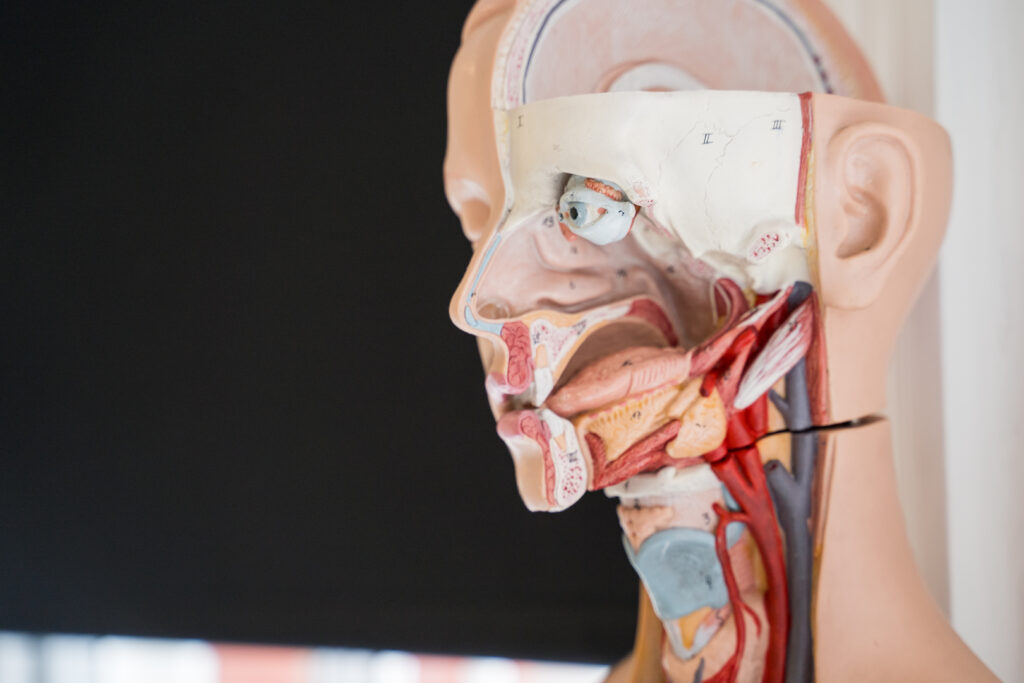
GCSE Biology
Biology is the study of living organisms, their workings and the interplay between them. The IGCSE Biology course is ideally suited to those wishing to pursue the subject to A Level, or those simply wishing to gain an understanding of the workings of life around them. Biology is a practical subject and students are encouraged to carry out a number of experiments in the college’s laboratory.
Topics include Homeostasis, Respiration, Variety of life through to biofuels and genetic engineering.
Biology Students go onto to a varied array of further studies from Medicine and Dentistry to Zoology, conservation projects and journalism.
The course is examined through two written papers that can cover material from anywhere in the syllabus. Included in the exam are questions on carrying out experimental, theory and data manipulation.
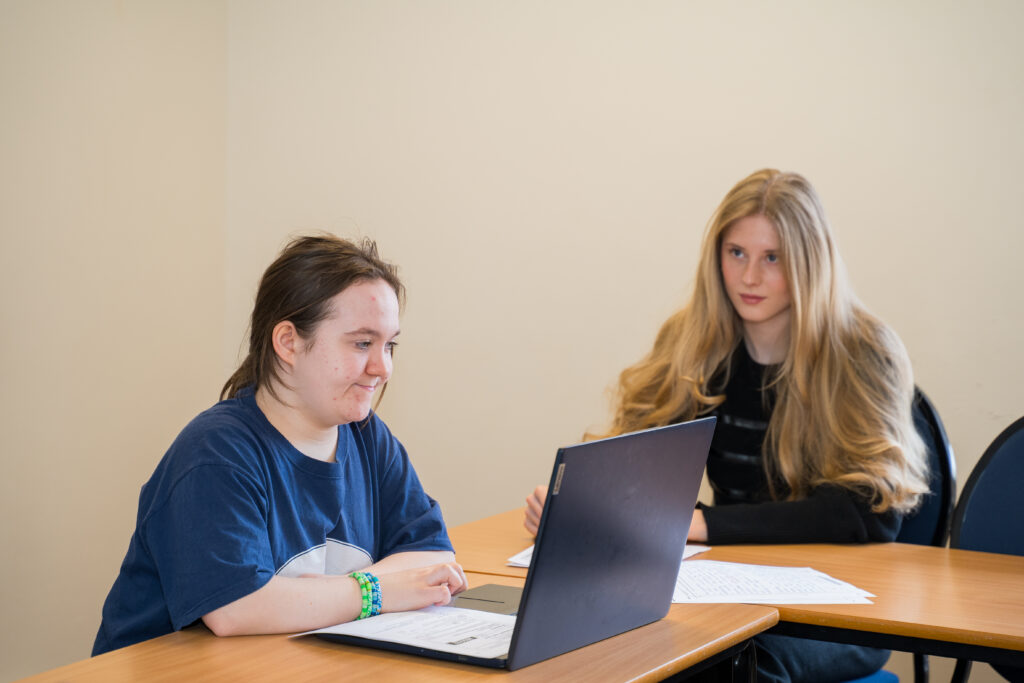
GCSE Business Studies
The Subject
Business Studies is an excellent introduction to the world of commerce and entrepreneurship. It takes students through a range of topics and encourages them to think “outside the box.” Areas of study include macro and microeconomics, ownership, finance and accounts, marketing, production, and elements of business law.
The Course
The college follows the Pearson IGCSE Business Studies specification. The course is divided into two sections. Paper One covers small businesses with up to 49 employees. Paper Two then focuses on larger firms with over 250 employees. Both papers develop an awareness of business concepts and apply them to real-life scenarios.
The exam papers are equally weighted and consist of a mixture of multiple-choice, short-answer, data-response, and open-ended questions.
The subject helps develop critical thinking and inquiry skills. Students are taught to distinguish between facts and opinions, calculate, interpret, and evaluate business data, build arguments, and make informed judgments. By developing these skills and embedding a wide range of technical terminology, this course provides an excellent foundation for students interested in taking Business or Economics at A level.
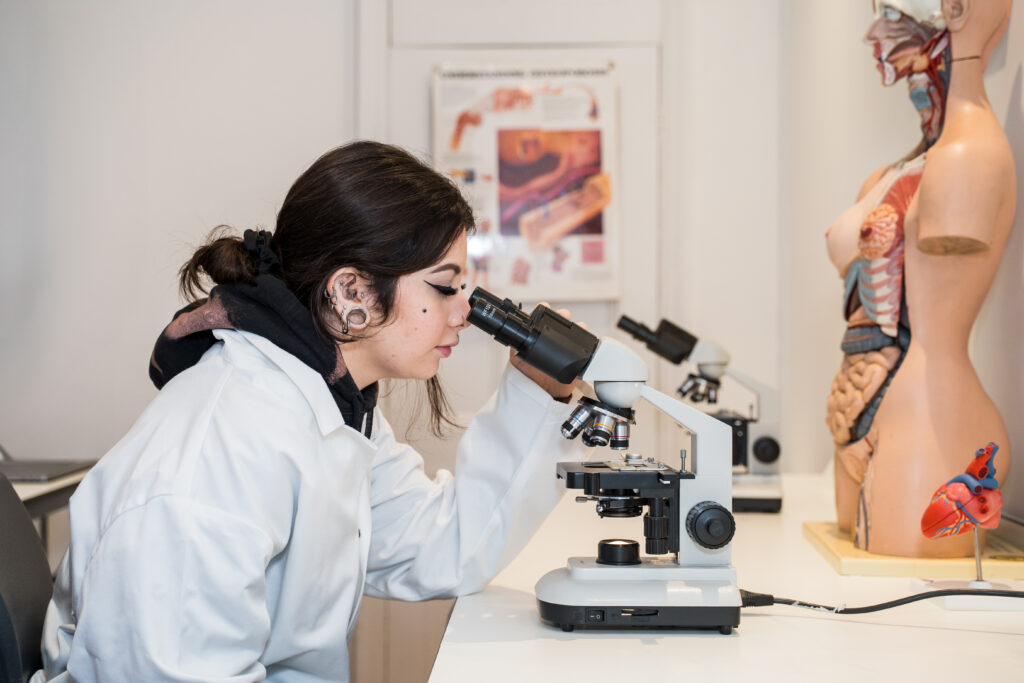
GCSE Chemistry
Chemistry is the study of atoms, how they interact with each other, the properties of the resulting chemicals and what we can do with the materials we make. The IGCSE Chemistry course is ideally suited to those wishing to pursue the subject to A Level, or those simply wishing to gain an understanding of the world around them. Topics covered include proving the composition of the air and how our actions are altering it, chemical bonding, extraction, separation and uses of raw materials, manufacture methods and factors effecting choosing them. Chemistry also requires students to apply their mathematical skills in reaction calculations.
The experiments in Chemistry teach the students to select the safety measures to implement, along with supplying them with hands on of techniques such as Titration and Electrolysis. These chances encourage precision, control, observation and data recording skills.
Chemistry is assessed through two written papers (one 2hrs long and the other 1hr long) they will test the students understanding of ideas, ability to predict and explain properties, carry out calculations and suggest factors to consider when carrying out investigations. Future careers range from medicine, medicinal chemistry and green chemistry to materials science, law and entrepreneurial enterprises.
Outside of the classroom Collingham students have been to the Royal Society Science show, Meet the Universities at the Royal Society of Chemistry and have taken part in the Chemistry Olympiad.
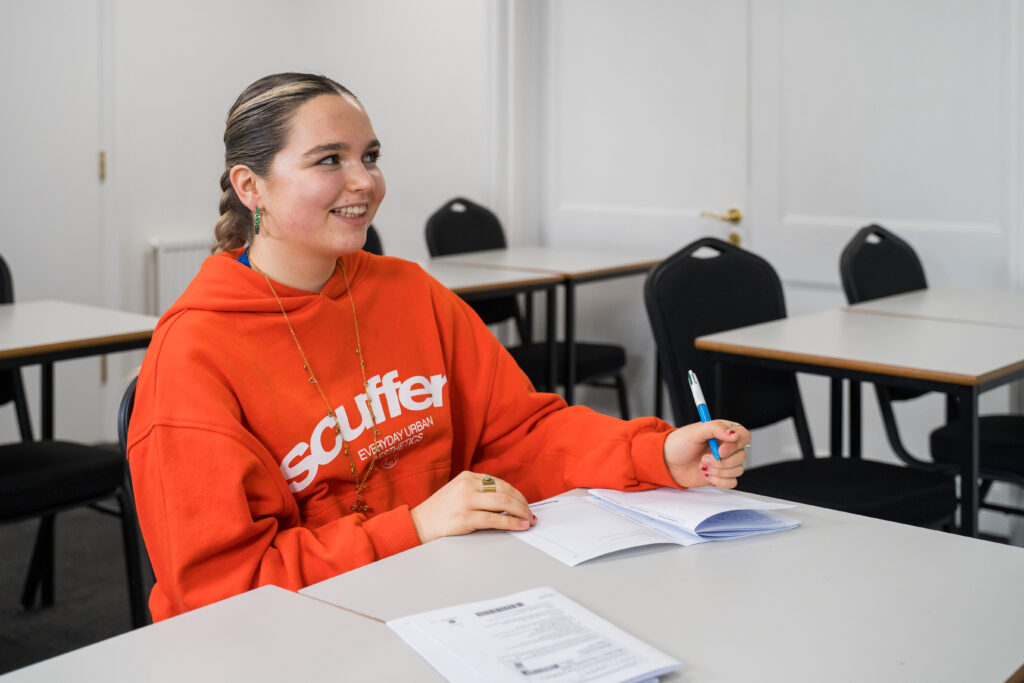
GCSE Classical Greek
The Subject
This subject gives the student the opportunity to study the language and literature of ancient Greece, reading the works of authors such as Euripides, Homer, Plutarch and Xenophon. They will experience at first hand elements of the culture, language and social and political life of Greek civilisation which has inspired much of western civilisation.
Studying an ancient language helps students learn more about the way languages are structured, and how they impact upon later cultures. This course will also promote the development of analytical skills and intellectual flexibility, which will be useful in a wide range of jobs or in further study.
Students need no prior knowledge of any classical language for this course, but will need to start in Year 10 if they do so.
The Course
Students will:
- Learn how to read classical Greek texts in their original language.
- Read and analyse set texts by authors such as Euripides, Homer, Plutarch and Xenophon in their original language.
- Develop a sensitive and analytical approach to language, including an awareness of the relationship between classical Greek and modern languages.
- Learn more about ancient Greek culture and society to provide context for the texts read in class.
- Be able to communicate their ideas clearly and effectively.
The OCR GCSE in classical Greek is composed of three papers:
- Language (1 hour 30 minutes). This paper requires the student to translate and/or answer comprehension questions about texts they will not have seen before they enter the exam room.
- Literature (1 hour). This paper requires the student to translate and answer comprehension questions about the literary texts that they have read in class.
- Culture (1 hour). This paper asks the student to answer questions exploring the culture and society of ancient Greece.
There is no language component to this paper.
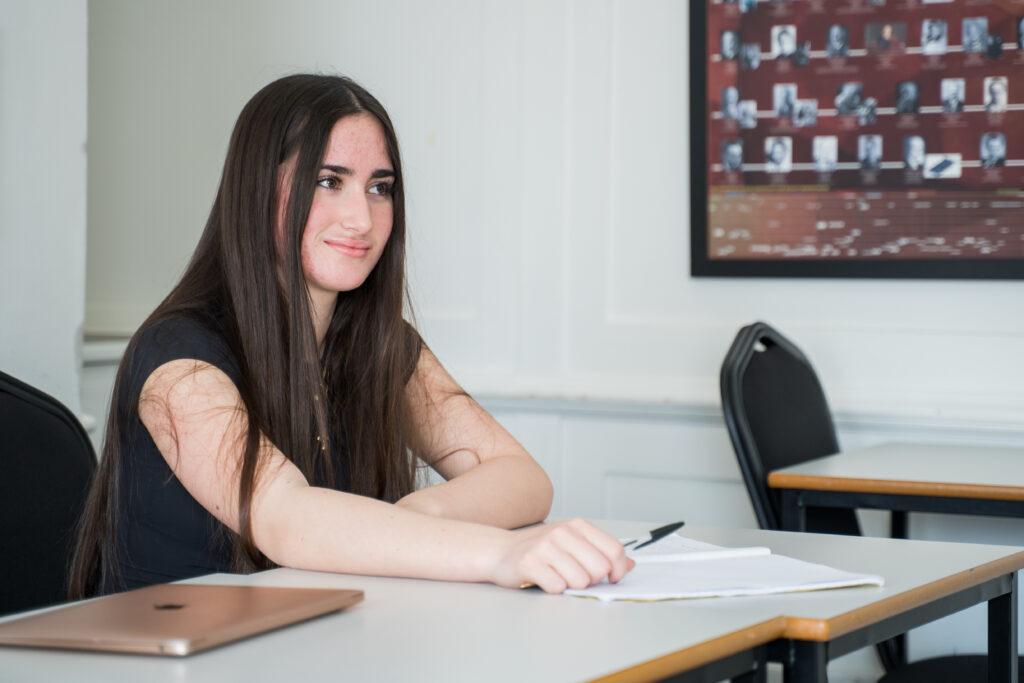
GCSE Classical Studies
The Subject
Classical Studies provides its students with a wide-ranging overview of the ancient world, in both Greek and Roman contexts. Students will explore the architecture, literary sources and societies of ancient Greece and Rome, and begin to understand how these cultures have influenced the development of much of western civilisation. By exploring Greece and Rome at the same time, students will be encouraged to consider the similarities and differences of both cultures, and how those cultures have impacted on our own.
There is no required prior knowledge of the ancient world for this qualification. Classical Studies offers a vibrant mixture of disciplines such as Archaeology, English, History and Philosophy. Students who do well in other humanities subjects (e.g. English and History) will do particularly well in this course.
There is no need to know Latin or Greek to take this subject, but you will need to be comfortable with reading and writing.
The Course
The course comprises of two units, each of which will lead to a final exam in Year 11. Both exams are 1 hour and 30 minutes long, and feature a mixture of short comprehension sections and longer essay questions.
For the first paper, a thematic study of “Myth and Religion” in the ancient world, students will explore how the Greeks and Romans contemplated and interacted with the divine. Who were the Graeco-Roman gods? How were they worshipped? What did their temples look like? What was it like to attend an ancient religious festival? What sorts of myths did the Greeks and Romans tell about their gods?
The second paper is a literary and cultural study of “Roman City Life”. In this unit we explore what it was like to live in ancient Rome, and what the Romans said about their “eternal city”. What was it like to attend the games at the Colosseum? What did a Roman household look like? How was Roman society arranged? What did a Roman do to relax?
Both these units will involve study of the cultures of Greece and Rome through an exploration of the surviving archaeological evidence (such as the Parthenon, the Ara Pacis Augustae and the Colosseum) and literary sources (such as Homer, Virgil, Horace and Plutarch).
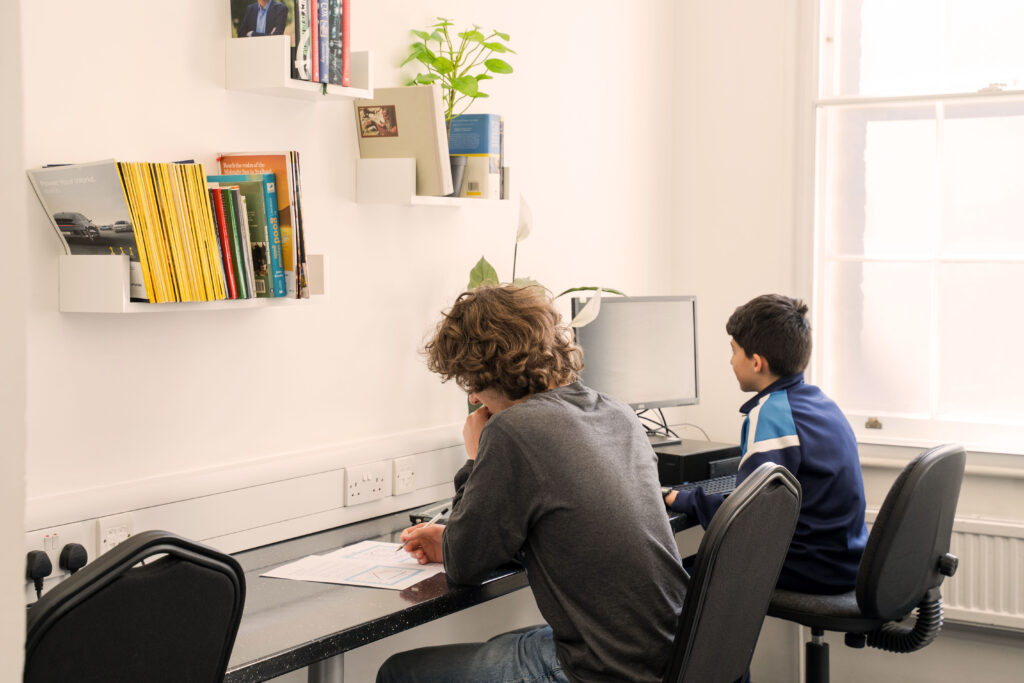
GCSE Computer Science
The Subject
Computer Science, like mathematics, underpins a huge range of subjects, and has concepts and ways of working that do not change quickly over time, including programming, algorithms and data structures. A key skill that is developed is ‘computational thinking’ and this offers insightful ways to view how information operates in many natural and engineered systems. Another core skill in Computer Science is computer programming which while seeming esoteric, is the closest that a student can come to thinking about thinking. It develops logic, rigour and problem solving and has led to Computer Science being dubbed ‘the new Latin’.
The Course
The course is a mixture of both theory and practical program development. The theory of Computer Science is examined over two examination papers each worth 40% of the overall GCSE. Topics covered include problem solving, data, communication, programming, computers and the Internet and the bigger picture. The remainder of the course consists of developing a computer programs using a high-level language in this case Python that are marked and assessed internally. This program is selected from four possible assignments set by the examination board. The assignment will involve following the Systems Development Life Cycle and producing documentation consisting of analysis, design, coding and testing.
The subject of Computer Science is highly creative. This may seem self evident in the case of computer games, electronic art and computer generated music, but these examples from the creative industries perhaps conceal the fact that writing any computer program involves creativity in the virtual universe behind the screen. A well written computer program contains an intrinsic beauty and structure not unlike poetry.
This qualification develops student’s ability to apply ‘computational thinking’ and has a specification with a trusted approach and clear assessments accessible to all. It also fosters skills and knowledge for progression to further study.
No previous experience of computer programming is required and the course is suitable for students who have no intention of pursuing computing beyond GCSE but who may, nonetheless, wish to apply the mental disciplines involved to other science or arts subjects.
During the year you can expect trips to the National Museum of Computing as well as the Science Museum.
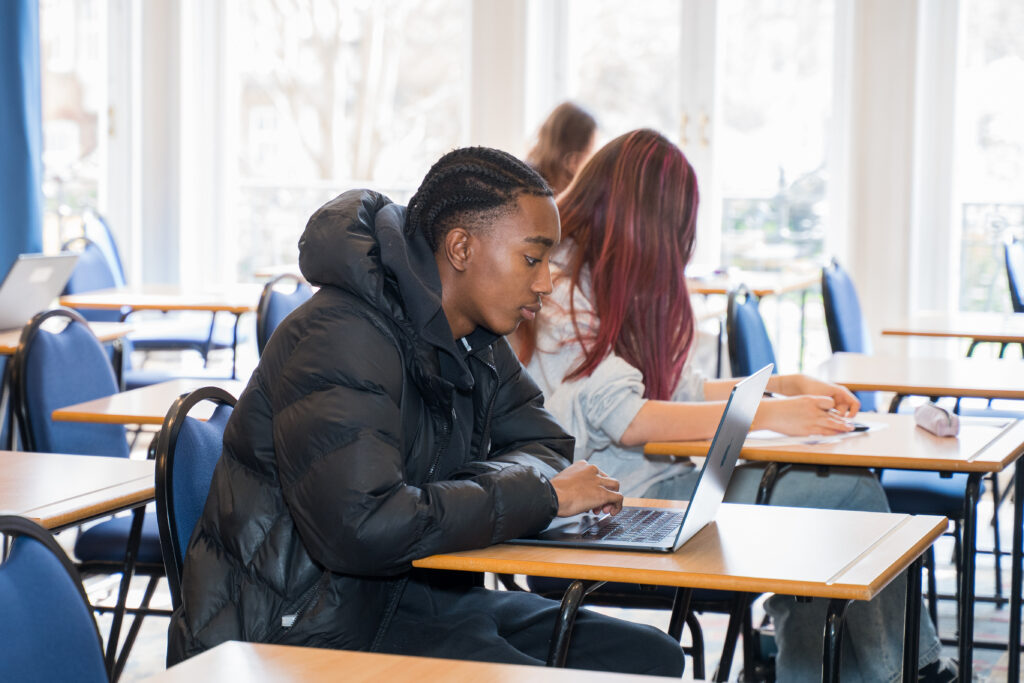
GCSE English Language
We currently study the AQA syllabus which involves two exams, testing a range of reading and writing skills. There is currently no coursework involved with this syllabus.
The subject
English Language is a core subject, essential for admission to higher studies. This subject will evolve and refine both your reading and writing skills and develop your confidence in speaking and presentation. You will explore a range of lively topics in discussions, unleash your imagination through creative writing and develop analytical skills in a range of contexts. English Language will also support the study of other subjects as many of the skills learnt will be applicable in other subject areas.
The course
English Language has three components, reading, writing and speaking and listening. We study a range of non-fiction and fiction extracts, including newspaper and magazine articles, leaflets, biography, travel writing and short stories and fiction extracts. We discuss how writers use language to engage and influence their readers, and you will be able to try out some of these techniques for yourself.
We concentrate on writing better essays – a skill that transfers to many other subjects. We also practise writing formal letters, articles, leaflets, and speeches, focusing on presenting a structured and clear point of view. The speaking and listening component involves the delivery of a talk. In studying the fictional extracts we will explore character and literary techniques and use some of these to develop your own descriptive, narrative and imaginative writing.
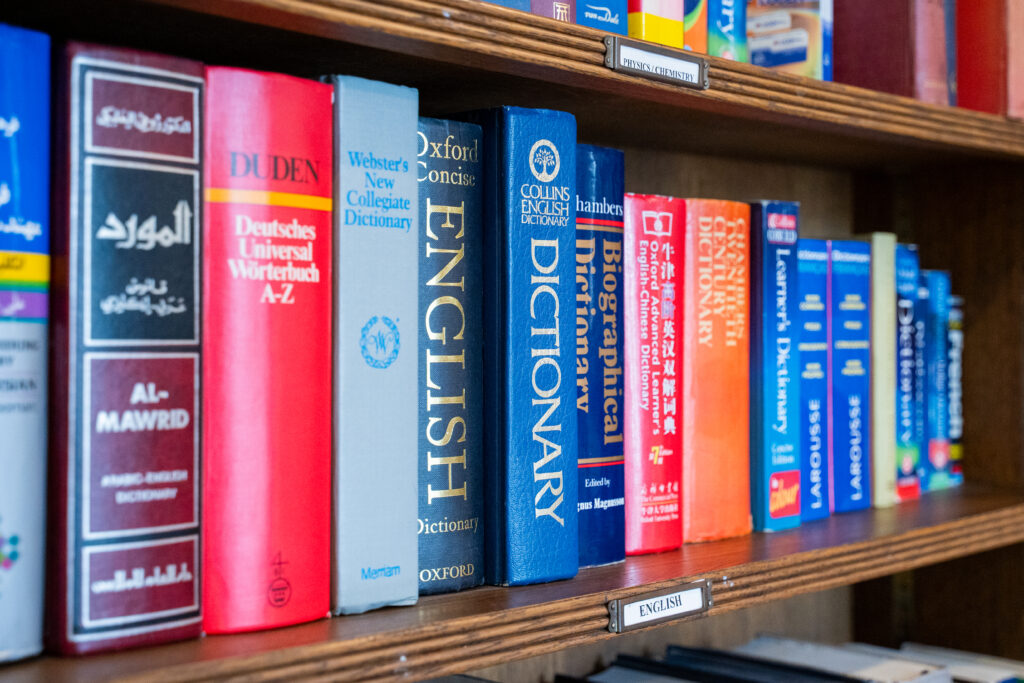
GCSE English Literature
This subject involves both exams and coursework
The subject
“A book is a machine to think with” – I. A. Richards
If you enjoy thinking for yourself rather than following the crowd, this is the course for you. English Literature involves studying the essential, often controversial issues that literature raises: love, friendship, prejudice, corruption, passion, loyalty and death.
Above all, books deal with human experience. If a work of literature is “a contraption with a guy inside” (W.H. Auden), anyone who likes to observe people will enjoy studying this subject.
The course
We analyse a range of poems and also explore one novel and two plays. To widen students’ understanding we also consider the historical and cultural background of each text, so English Literature appeals to those drawn to history and social sciences as well as those who just love reading. We also explore and appreciate a writer’s techniques in detail, complementing both analytical and creative writing in English Language. We take advantage of our Central London position by organising trips to theatres, exhibitions and, if relevant, the cinema.
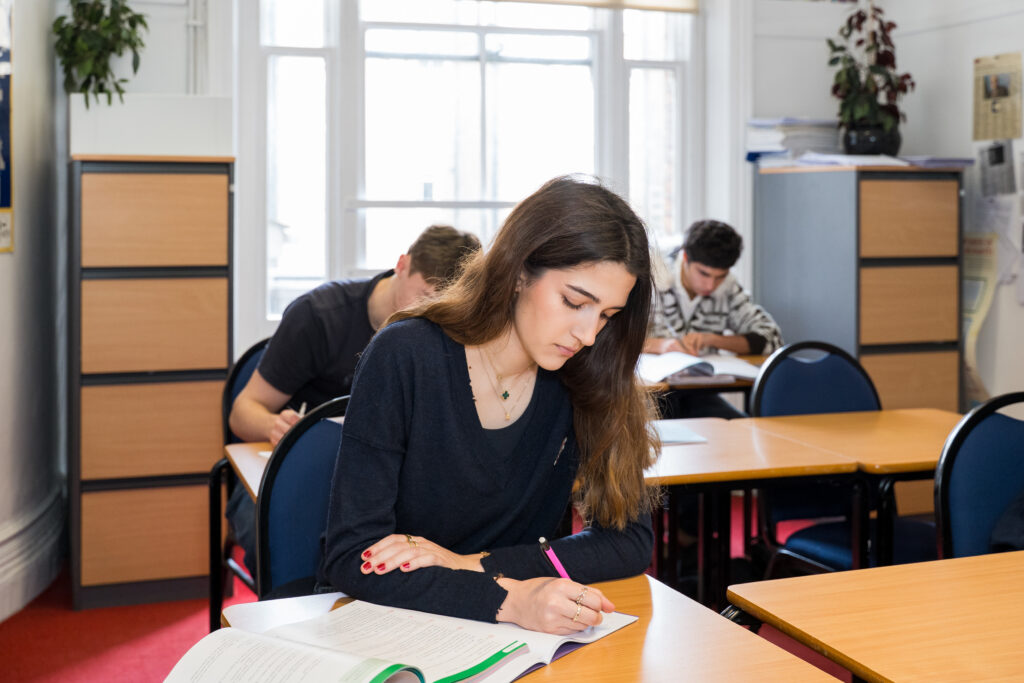
GCSE Geography
The Subject
Geography is a subject whose relevance has never been more important than today. Students are taught the principles of human and physical geography. These are then applied to current situations and case studies. There is a particular emphasis on Man’s effect on the natural environment.
The Course
IGCSE Edexcel Geography is divided into two exam papers.
Paper 1 sees students study River environments, Coastal environments and Hazardous environments. There will be a fieldwork study done on one of these topics.
Paper 2 looks at the human element of the subject. Here student will learn about Economic Activity and Energy, Urban environments and Globalisation and Migration.
The course will see the Student go out of school to do some practical fieldwork – this has included visits to the river systems of Epping Forest and coastal erosion and protection on the Isle of Wight.
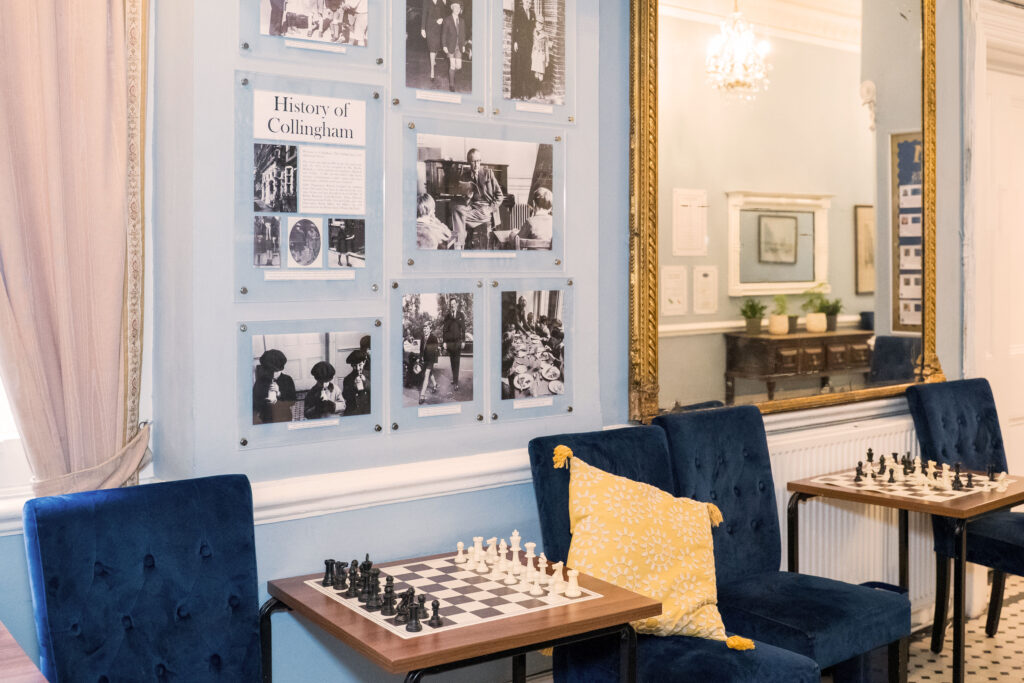
IGCSE History
The IGCSE in History (Pearson Edexcel) offers students the opportunity to study twentieth-century political, military and scientific history. The modules have been chosen for their connections with one another and for the insight they provide into the contemporary geo-political landscape. Students will examine primary and secondary source material in order to develop a deep understanding of both the topics studied and historical skills and methods.There are four modules examined in two papers:
- Paper 1: Depth Studies
- Germany: development of dictatorship, 1918-45
- A world divided: superpower relations, 1943-72
- Paper 2: Investigation and Breadth Studies
- Historical investigation: The origins and course of the First World War, 1905-18
- Breadth Study: Changes in medicine, c1848-c1948
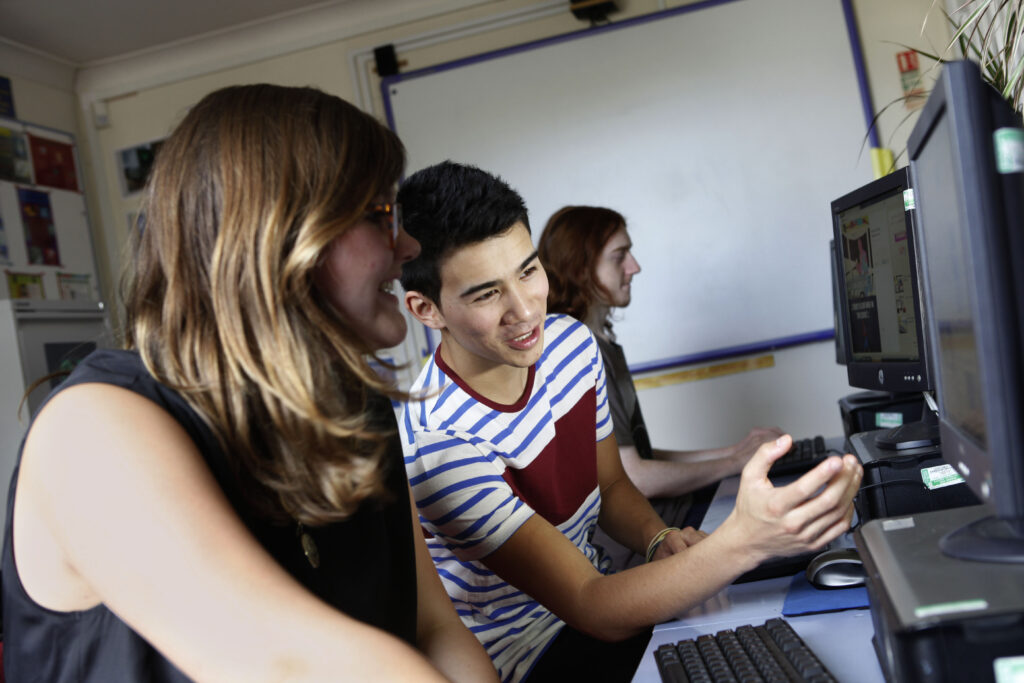
GCSE Latin
The Subject
This subject gives the student the opportunity to study the language and literature of ancient Rome, reading the works of authors such as Caesar, Horace, Tacitus and Virgil. They will experience at first hand elements of the culture, language and social and political life of Roman civilisation which has inspired almost every empire that has appeared since.
Studying an ancient language helps students learn more about the way languages are structured, and how they impact upon later cultures. This course will also promote the development of analytical skills and intellectual flexibility, which will be useful in a wide range of jobs or in further study.
Students need no prior knowledge of any classical language for this course, but will need to start in Year 10 if they do so.
Students with prior knowledge of Latin to KS3 level will be able to take the course in one year, but will need to be prepared to work hard to reach the required level – please contact the Collingham office if you would like to discuss this option.
The Course
Students will:
- Learn how to read classical Latin texts in their original language.
- Read and analyse set texts by authors such as Caesar, Horace, Tacitus and Virgil in their original language.
- Develop a sensitive and analytical approach to language, including an awareness of the relationship between classical Latin and modern languages.
- Learn more about ancient Roman culture and society to provide context for the texts read in class.
- Be able to communicate their ideas clearly and effectively.
The OCR GCSE in classical Latin is composed of three papers. For students who are less familiar with Latin, there is the option to replace the second literature paper with a culture paper instead:
- Language (1 hour 30 minutes). This paper requires the student to translate and/or answer comprehension questions about texts they will not have seen before they enter the exam room.
- Literature 1 (1 hour). This paper requires the student to translate and answer comprehension questions about the prose texts that they have read in class. Authors include Caesar, Pliny and Tacitus.
- Literature 2 (1 hour). This paper requires the student to translate and answer comprehension questions about the verse texts that they have read in class. Authors include Horace, Martial and Virgil.
- Culture (1 hour). This paper asks the student to answer questions exploring the culture and society of ancient Rome.
There is no language component to this paper. This paper is traditionally taken by those new to Latin or with less confidence in the language.
GCSE Mathematics
At Collingham our students study for the Edexcel GCSE in mathematics.
The course (with re-sit option) takes either one or two years. Students are entered for either the Foundation or Higher tier examinations. In both cases, assessment is by three equally-weighted examination papers, each of duration 1.5 hours (a calculator may be used for papers 2 and 3, but not for paper 1). The maximum grade obtainable at the foundation level is 5, whereas the maximum at the higher level is 9.
Students are allowed to sit IGCSE maths if required.
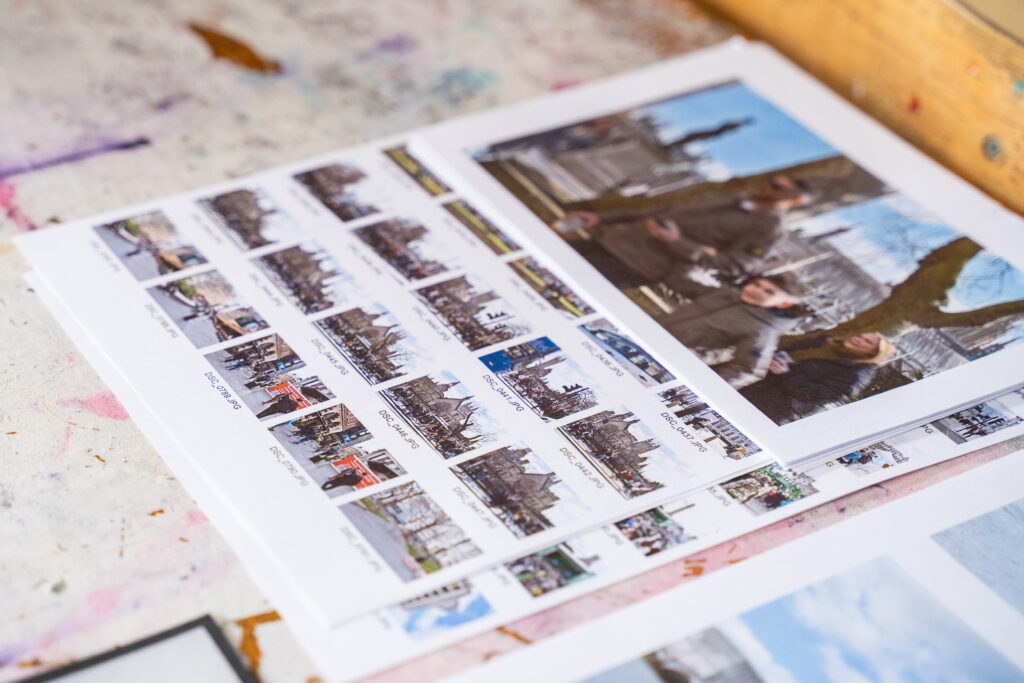
GCSE Photography
Why Choose Photography?
Photography is increasingly popular as a GCSE choice. It encourages the exploration of photography as an artistic medium. It combines well with more traditional subjects, providing an outlet for creativity. Photography can be a useful addition to a student’s portfolio of qualifications and can also help to secure admission to Art College or university.
Although there is no formal requirement to have studied Photography before embarking on a GCSE course, it helps to have an interest in the subject. A 35 mm single lens camera is required, everything else is provided. Lessons take place in the purpose-built photography laboratory, which includes a fully-equipped darkroom. See below for recent photographs.
Students can select from a range of study areas within photography including portraiture, landscape or still life photography and documentary photography.
The Course
For GCSE the final unit is a controlled assignment, which must be done under exam conditions. Students must be prepared to work outside school hours and at weekends in the run-up to the exams. Visits to Photographic exhibitions, galleries and museums are arranged on a regular basis by Tutors for the benefit of students. Their experience of other people’s work allows students to explore the historical, social and technical aspects of photography, forming a basis for the work journals, which are an integral part of coursework.
As part of their course, students are expected to take photographs in a variety of settings, including open-air locations. They may be instructed to search out suitable settings/locations for photographs outside the College. The coursework is marked by the Tutors at the end of the Spring Term, before being submitted to the scrutiny of a Moderator nominated by the AQA.
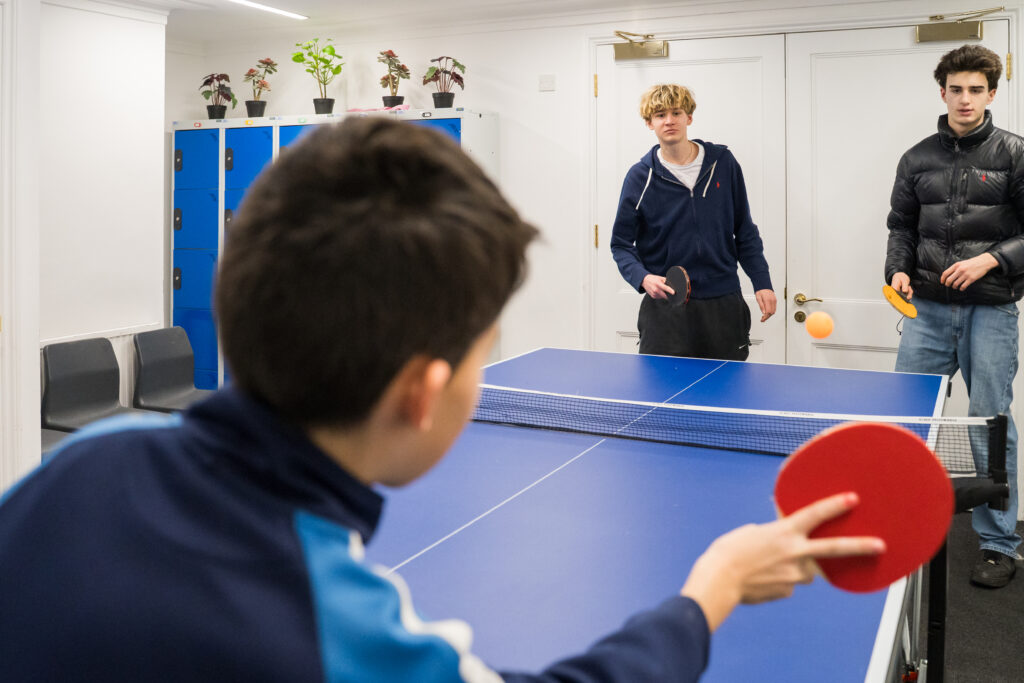
GCSE Physical Education
Physical Education (PE) as a GCSE comprises of both theory and practical aspects. The aim of the course is to provide students with an improved knowledge and understanding of how to effectively live an active and healthy lifestyle, while also developing and enhancing their physical performance. Students will be encouraged to develop an improved understanding and appreciation of their own and others’ cultures in relation to PE.
It is an ideal subject to accompany the study of scientific subjects, since the learning theory covers key areas of human physiological systems (e.g. anatomy and energy systems).
Students will be assessed both internally and externally. There are two written units which will be taken as part of the formal examination period with both lasting 1 hour, with two further units made up of practical elements being assessed internally by the tutor.
PE is an excellent subject to aspire to take right through to university level, where “Sport science” is now a highly regarded degree. Universities such as Bath and Loughborough are renowned for high levels of sporting excellence, and provide degrees tailored to career opportunities in a range of fields.
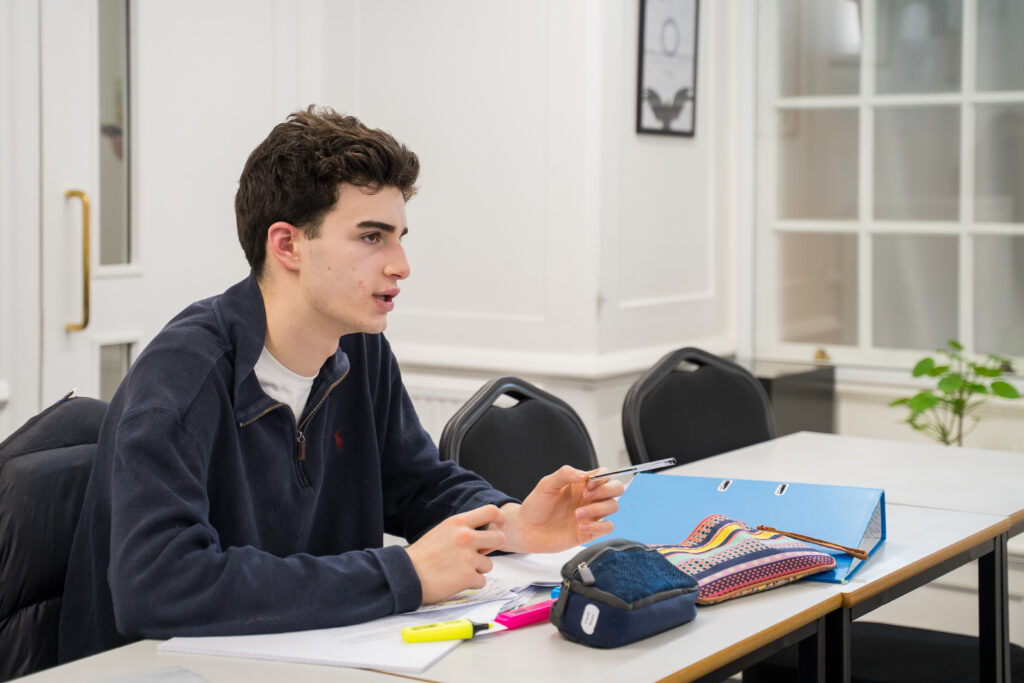
GCSE Physics
Physics is the study of how bodies, small and large, interact with each other. The course looks at motion both on a human scale and a planetary scale, the conservation of energy and the forms it can be found in, the dangers of electricity and how to harness it to control and enrich our lives. Nuclear fusion, fission and decay are all studied with their individual benefits and risks investigated. These areas are all under pinned by calculations and practical demonstrations and investigations. Students are encouraged to ‘think outside the box’, with lively classroom debates.
Physics teaches students to research, make a hypothesis, observe, analyse and calculate, all of which are important transferable skills. Ongoing fields of study are Physics, Maths, Materials, Medical Physics, Nano-technology and Business.
Physics IGCSE is assessed through two written papers (paper one is 2hrs long and the second is 1hr) they will test the students understanding of the concepts covered, ability to recall and apply formula, carry out calculations, their analytical skills and ability to plan investigations.
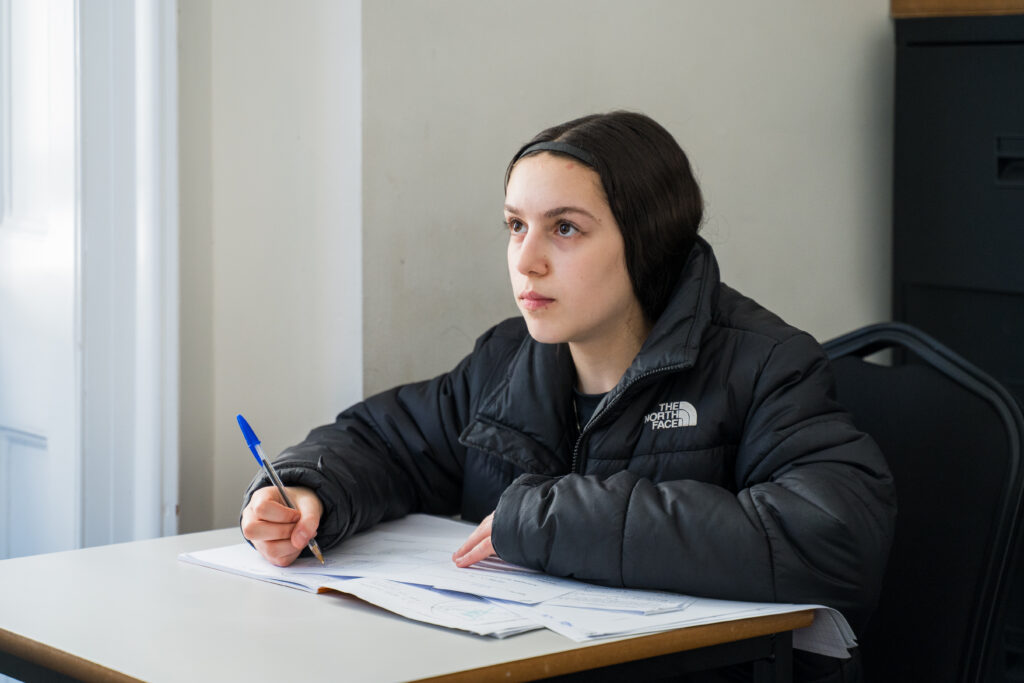
GCSE Portuguese
The Subject
Spoken by about 230 million people, Portuguese is the sixth most widely spoken language in the world.
It is one of the official languages of the European Union as well as other international organisations such as: African Union, the Community of Portuguese Language Countries, Mercosul, the Organisation of American States, the Organisation of Ibero-American States, and the Union of South American Nations.
It will be really useful when looking for an international career.
Learning Portuguese will help you to gain access to a whole new range of countries spread over 4 continents. It has remarkable literature (Jose Saramago, Fernando Pessoa, Jorge Amado, Paulo Coelho, Jose Eduardo Agualusa, Mia Couto) music (Fado, Brasilian music) gastronomy, places to visit and relax, and warm and welcoming people. Across Europe there is a large community of Portuguese and Brazilian immigrants in countries such as Luxemburg, Switzerland, France and England. In Africa: Angola (one of the faster growing economies in the world), Moçambique, Guiné-Bissau, São Tomé e Príncipe. In Asia: East Timor, Macau, Goa. In the Americas: Brazil is one of the largest economies in the world. There is a large community of Portuguese and Brazilian immigrants in the United States. In many areas of the US Portuguese is commonly spoken.
The Course
The Portuguese GCSE will be perfect for those who aim to master a new language, either to be used on holidays or on a working visit to a Portuguese speaking country.
After the course you should be able to:
- Articulate experiences and express your thoughts and feelings;
- Organise and present facts, ideas and opinions;
- Understand and use a wide range of appropriate vocabulary. This will definitely help you to start a conversation and communicate regarding a vast range of daily topics.
It will be taught by a native speaker which will allow you to learn and experience many Portuguese cultural habits and all with some glimpses of Portuguese’ 9 centuries of history.
Boards: CIE and EDEXCEL
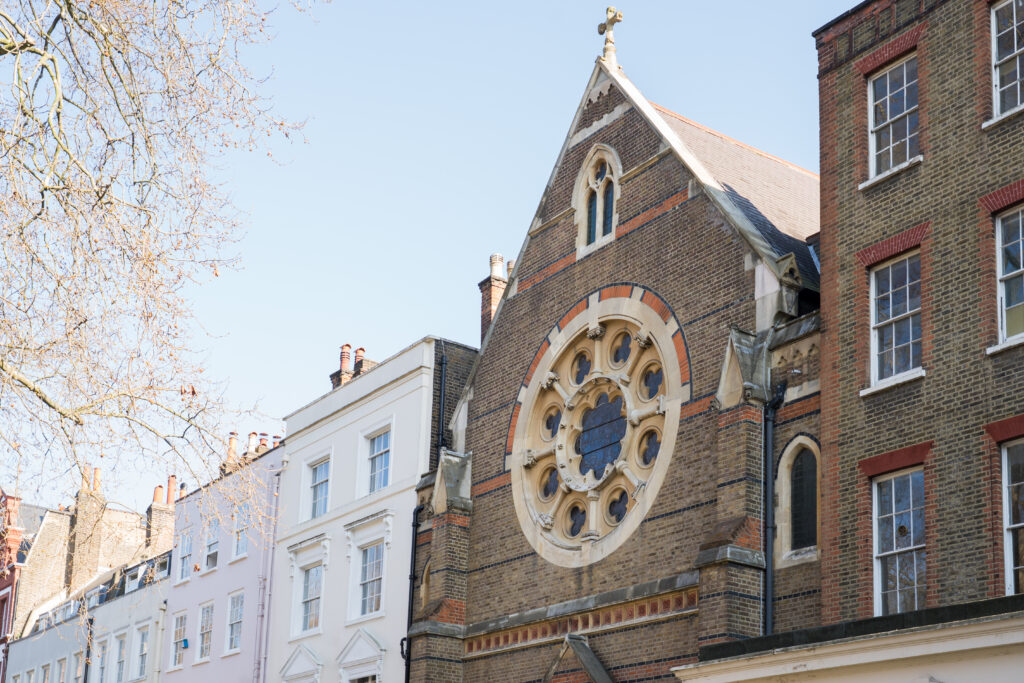
GCSE Religious Studies
GCSE Religious Studies A (AQA) challenges students with questions about belief, values, meaning, purpose and truth, enabling them to develop their own attitudes towards religious issues. Students will also gain an appreciation of how religion, philosophy and ethics form the basis of our culture. They will develop analytical and critical thinking skills, as well as the ability to work with abstract ideas, and research skills. The thematic studies taught vary year-on-year based on students’ own interests.
There are six modules examined in two papers:
- Paper 1: The study of religions: Beliefs, teachings and practices
- Christianity
- Islam
- Paper 2: Thematic studies
- Four from:
- A: Relationships and families
- B: Religion and life
- C: The existence of God and revelation
- D: Religion, peace and conflict
- E: Religion, crime and punishment
- F: Religion, human rights and social justice
- Four from:
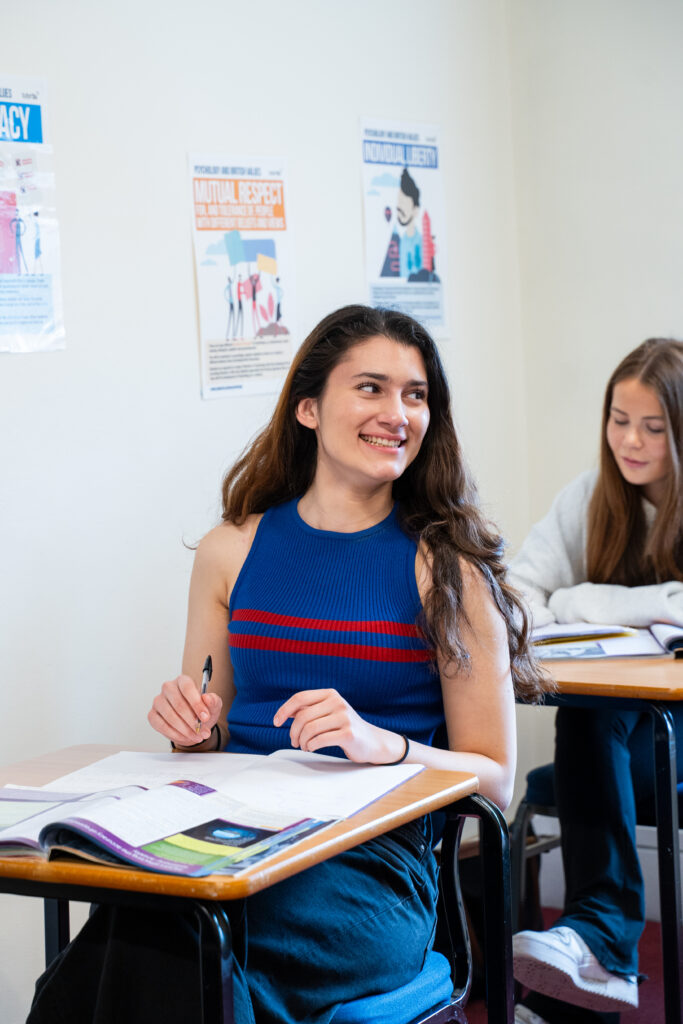
IGCSE Spanish
An important aim of Spanish IGCSE is to enable students to communicate in the language in everyday situations you may encounter while travelling in Spanish-speaking countries, such as ordering food and drinks, shopping and asking for directions.
The topic areas covered in the course are Home and Abroad, Education and Employment, House, Home and Daily Routines, The Modern World and the Environment and Social Activities, Fitness and Health. By the end of the course, you will be able to use past, present and future tenses to narrate events, and to use evaluative as well as descriptive language.
We do the Edexcel examination which consists of three papers: Speaking (25%), Listening (25%) and Reading and Writing (50%).
In the short term, Spanish is perfect for those who want to be able to use the language on holiday or during their gap-year travels. Spanish is a major world language, and as such it is extremely useful in business situations. You may also choose to learn it for the sheer satisfaction of mastering another language. Numerous studies have demonstrated the beneficial effect learning a foreign language has on cognitive function, and you will find that your understanding of English improves too.
Enrolment & Admissions
We accept GCSE applications on a rolling basis. Students may start in September or, in some cases, join mid-year depending on course availability and suitability.
To apply, simply click Apply Now below to contact our Admissions Team and arrange a consultation and interview with the Principal or Vice Principal. International applicants may complete their interview via video call.
